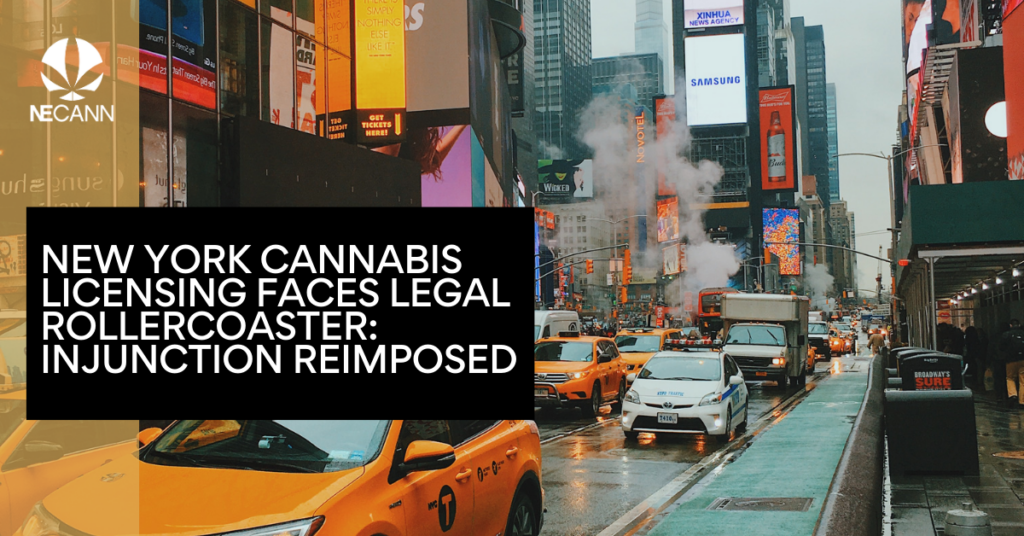The journey towards cannabis licensing in New York has taken yet another unexpected turn, as a New York Supreme Court Judge reversed his previous decision and reimposed an injunction. This legal maneuver has halted the progress of 30 cannabis businesses that were previously set to move forward with their opening plans.
The decision to reinstate the injunction followed the submission of an affidavit by Patrick McKeage, First Deputy Director of the Office of Cannabis Management (OCM). McKeage’s affidavit raised concerns that the 30 applicants in question had not fulfilled all the necessary requirements to open their cannabis shops, despite previous assertions by the OCM that they were “ready to open.”
In his ruling, Justice Kevin Bryant emphasized the OCM’s admission that the listed licensees were still finalizing construction and that post-selection inspections had not been scheduled or completed. He also noted that it was unclear whether any of the 30 identified licensees had successfully completed all post-selection requirements and inspections. This lack of clarity raised doubts about their readiness for operation.
At the heart of this legal battle is a lawsuit filed by four service-disabled military veterans. The lawsuit contends that the OCM’s licensing system violates New York’s adult-use cannabis law by restricting initial licenses to individuals with cannabis convictions rather than a broader category of social equity applicants, which should include service-disabled military veterans. It alleges that the OCM overstepped its authority by creating the licensing category for individuals with convictions without legislative approval, asserting that this decision violates the state constitution.
The initial injunction was imposed on August 7 and subsequently extended on August 18, reflecting the complex and contentious nature of the legal challenges surrounding cannabis licensing in New York.
This ongoing legal saga underscores the intricacies of cannabis regulation and the importance of adhering to the state’s evolving laws. As New York grapples with the complexities of social equity and licensing, the industry’s future remains uncertain, pending further legal developments.




